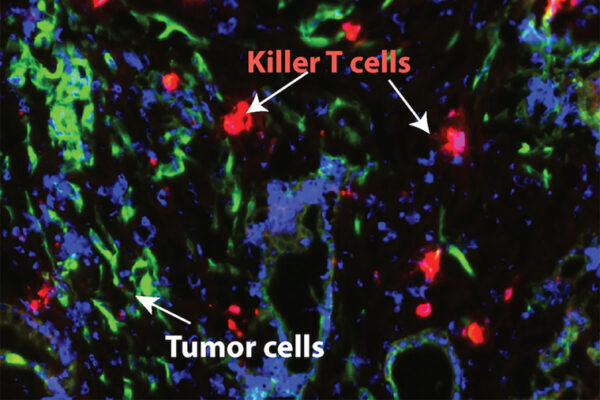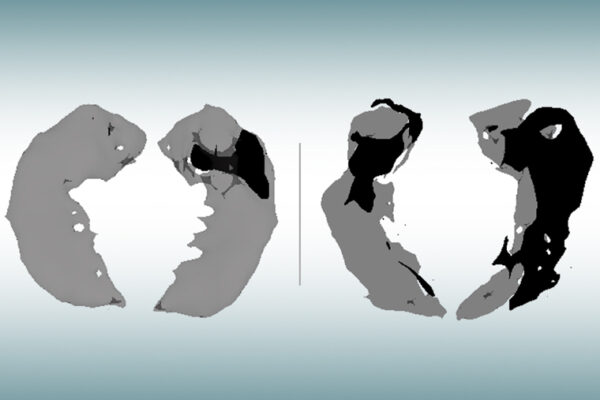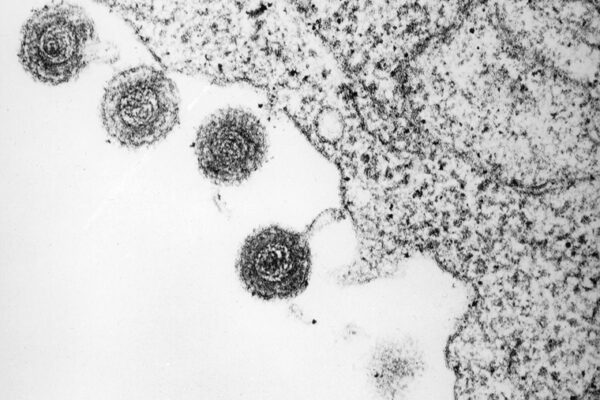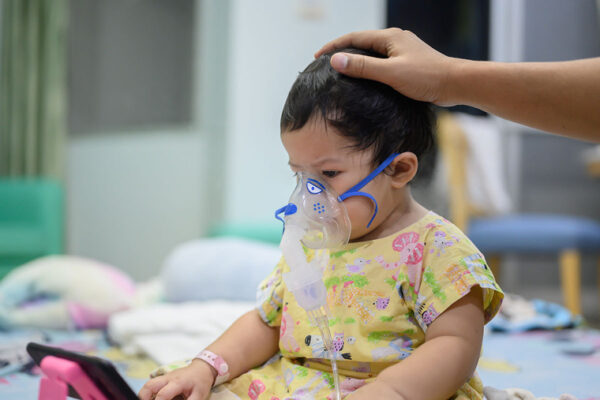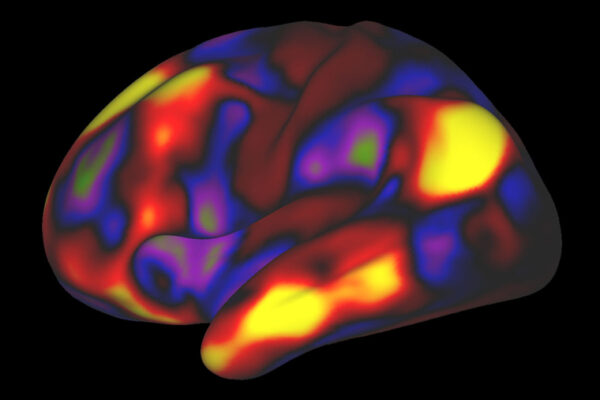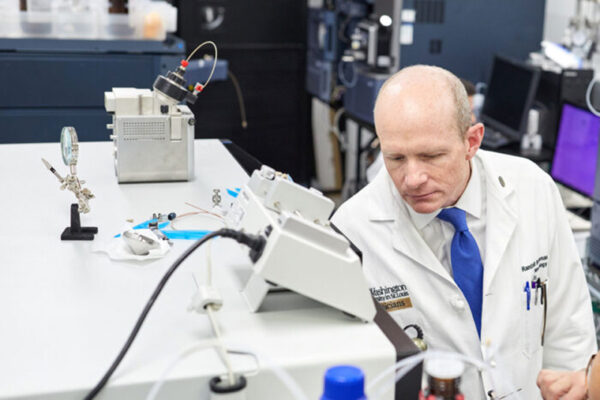Novel treatment makes pancreatic cancer susceptible to immunotherapy, mouse study shows
New research from Washington University School of Medicine shows that blocking a major inflammatory pathway in pancreatic cancer makes the tumors sensitive to chemotherapy and a type of immunotherapy that helps the immune system’s T cells to attack cancer cells.
Damage early in Alzheimer’s disease ID’d via novel MRI approach
New research from Washington University School of Medicine shows that this novel MRI approach can identify brain cell damage in people at early stages of Alzheimer’s, before tissue shrinkage is visible on traditional MRI scans.
Risk of schizophrenia assessed with new screening tool
Researchers at Washington University School of Medicine and colleagues in Kenya have shown that a screening tool developed at the university can help predict in about 5 minutes whether young people are at high risk and may go on to develop schizophrenia.
New way viruses trigger autoimmunity discovered
Studying mice, Washington University School of Medicine researchers have discovered that roseolovirus can trigger autoimmunity in a previously unknown way: by disrupting the process by which immune cells learn to avoid targeting their own body’s cells and tissues.
Antibiotic doesn’t prevent future wheezing in babies hospitalized with RSV
Antibiotics provide no benefit in preventing future recurrent wheezing in babies hospitalized with respiratory syncytial virus (RSV), according to a new study led by Washington University School of Medicine researchers.
Does improving sleep reduce signs of early Alzheimer’s disease?
School of Medicine researchers are launching a phase 2 clinical trial to study whether using medication to treat sleep problems in older adults can reduce signs of early Alzheimer’s disease.
Craver wins National Science Foundation grant
Carl F. Craver, a professor of philosophy and of philosophy-neuroscience-psychology in Arts & Sciences, has won a grant of $282,603 from the National Science Foundation for research on time and episodic memory.
Risk, resiliency in aging brain focus of $33 million grant
Funded by a $33.1 million grant from the National Institute on Aging, researchers from the School of Medicine and other institutions have launched a large study that investigates just what keeps our brains sharp as we age and what contributes to cognitive decline.
Predicting the chaos in Tourette syndrome tics
Interdisciplinary research from Washington University in St. Louis has uncovered a pattern in the tics associated with Tourette syndrome.
Blood test for Alzheimer’s highly accurate in large, international study
Using mass spectrometry, Washington University School of Medicine researchers have developed a blood test that is up to 93% accurate at identifying people at risk of Alzheimer’s dementia. The findings suggest that the test should be considered for routine screening and diagnosis.
Older Stories
